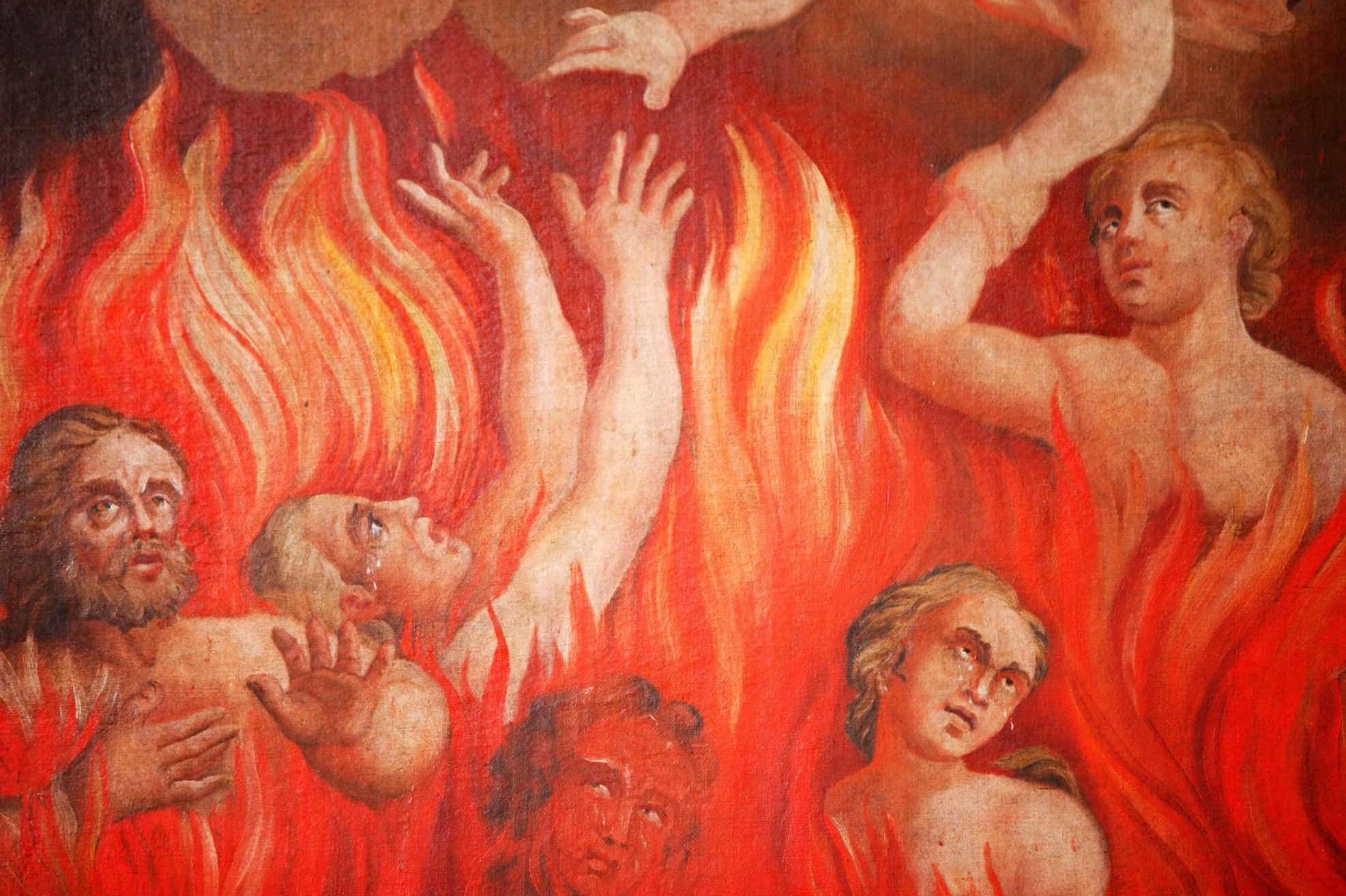
Hell in Christianity has always been a topic that sparks curiosity and debate. What exactly is Hell? Hell is often depicted as a place of eternal punishment for the wicked. But there's more to it than just fire and brimstone. Different Christian denominations have varying interpretations of Hell, ranging from a literal fiery pit to a state of separation from God. Some believe in eternal torment, while others think of it as a temporary state before eventual redemption. This article will explore 24 intriguing facts about Hell in Christianity, shedding light on its origins, evolution, and differing perspectives. Buckle up for a journey through theology, history, and a bit of mystery!
Hell in Christianity: An Overview
Hell is a concept found in many religions, but Christianity has its own unique perspectives. Here are some intriguing facts about Hell in Christianity.
-
Hell is often depicted as a place of eternal punishment. Many Christians believe Hell is where souls go if they are not saved by Jesus Christ. It's described as a place of unending suffering and separation from God.
-
The Bible mentions Hell multiple times. References to Hell can be found in both the Old and New Testaments. Terms like "Sheol," "Hades," and "Gehenna" are used to describe it.
-
Gehenna was a real place. Gehenna, often translated as Hell, was a valley outside Jerusalem where trash and dead bodies were burned. It became a symbol of ultimate destruction and punishment.
The Nature of Hell
Understanding the nature of Hell can be complex. Different Christian denominations have varying interpretations.
-
Hell is sometimes seen as a state of mind. Some theologians argue that Hell is not a physical place but a state of eternal separation from God.
-
Fire and brimstone are common imagery. Hell is frequently depicted with fire, brimstone, and eternal flames. This imagery comes from biblical descriptions and has influenced art and literature.
-
Hell's torment is often described as eternal. Many Christians believe that the suffering in Hell is never-ending, emphasizing the seriousness of sin and the need for salvation.
Who Goes to Hell?
The criteria for who ends up in Hell can vary among Christian beliefs.
-
Unbelievers are often thought to go to Hell. Many Christians believe that those who do not accept Jesus Christ as their savior will be condemned to Hell.
-
Some believe in a second chance after death. Certain denominations, like some branches of the Eastern Orthodox Church, believe in the possibility of repentance after death.
-
Hell is sometimes seen as a choice. Some theologians argue that people choose Hell by rejecting God and His love.
Hell in Different Christian Denominations
Different branches of Christianity have unique views on Hell.
-
Catholicism teaches about Purgatory. Catholics believe in Purgatory, a temporary state of purification for souls who are not damned but not yet ready for Heaven.
-
Protestants generally reject Purgatory. Most Protestant denominations do not believe in Purgatory, holding that souls go directly to Heaven or Hell after death.
-
Eastern Orthodox views can differ. The Eastern Orthodox Church has a more nuanced view of Hell, often emphasizing God's love and the possibility of eventual reconciliation.
Hell in Christian Art and Literature
Hell has been a popular subject in Christian art and literature for centuries.
-
Dante's "Inferno" is a famous depiction. Dante Alighieri's "Inferno," part of his "Divine Comedy," is one of the most well-known literary works about Hell.
-
Medieval art often depicted Hell vividly. Medieval artists frequently illustrated Hell with graphic and terrifying imagery to warn people of its horrors.
-
Modern interpretations vary. Contemporary Christian writers and artists continue to explore and reinterpret the concept of Hell in diverse ways.
Controversies and Debates
The concept of Hell has sparked many debates within Christianity.
-
Universalism challenges traditional views. Universalists believe that all souls will eventually be reconciled with God, challenging the idea of eternal damnation.
-
Annihilationism is another alternative view. Annihilationists argue that the wicked will be completely destroyed rather than eternally tormented.
-
Hell's existence is questioned by some. A growing number of Christians question the traditional doctrine of Hell, suggesting it may be a metaphor rather than a literal place.
Hell's Role in Christian Theology
Hell plays a significant role in Christian teachings and theology.
-
Hell underscores the need for salvation. The concept of Hell highlights the importance of accepting Jesus Christ for salvation and avoiding eternal punishment.
-
It serves as a moral warning. Hell is often used as a warning against sinful behavior and a motivator for living a righteous life.
-
Hell emphasizes God's justice. Many Christians believe Hell demonstrates God's justice, ensuring that evil and sin are ultimately punished.
Modern Perspectives on Hell
Contemporary views on Hell continue to evolve.
-
Some modern theologians focus on God's love. Modern theologians often emphasize God's love and mercy, sometimes downplaying the traditional view of Hell.
-
Hell is less emphasized in some churches. Many contemporary churches focus more on positive messages of love and redemption rather than the fear of Hell.
-
Interfaith dialogues influence views on Hell. Conversations with other religions and secular perspectives have led some Christians to reconsider and reinterpret the concept of Hell.
Final Thoughts on Hell in Christianity
Hell in Christianity is a complex and often misunderstood concept. It’s depicted as a place of eternal punishment for the wicked, but interpretations vary widely. Some see it as a literal fiery pit, while others view it as a state of separation from God. The Bible offers various descriptions, and theologians have debated its nature for centuries. Understanding these different perspectives can provide a deeper insight into Christian beliefs about the afterlife. Whether you see Hell as a physical place or a metaphorical state, it serves as a powerful reminder of the consequences of moral choices. This exploration of Hell underscores the importance of faith, repentance, and the hope of redemption in Christian teachings. Keep these facts in mind as you continue your journey through the rich tapestry of Christian theology.
Was this page helpful?
Our commitment to delivering trustworthy and engaging content is at the heart of what we do. Each fact on our site is contributed by real users like you, bringing a wealth of diverse insights and information. To ensure the highest standards of accuracy and reliability, our dedicated editors meticulously review each submission. This process guarantees that the facts we share are not only fascinating but also credible. Trust in our commitment to quality and authenticity as you explore and learn with us.


